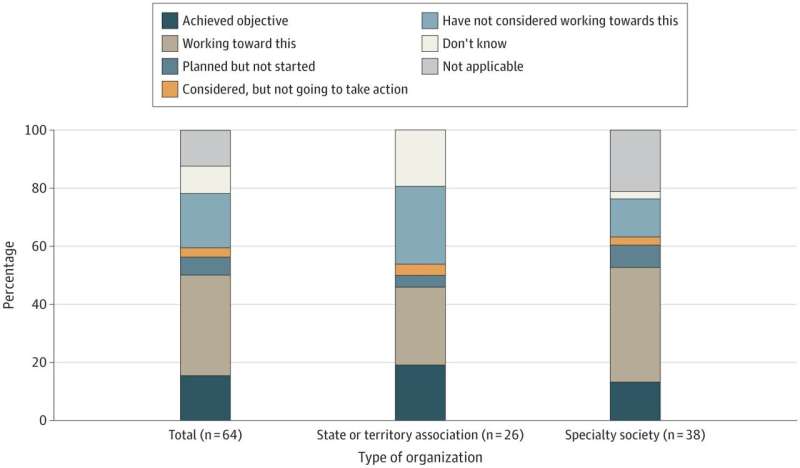This article has been reviewed according to Science X's editorial process and policies. Editors have highlighted the following attributes while ensuring the content's credibility:
fact-checked
trusted source
proofread
Efforts underway to eliminate harmful race-based clinical algorithms

Increased attention to harmful race-based clinical algorithms—equations and decision-making tools that misuse race as a proxy for genetic or biological ancestry—has led to the reconsideration of these algorithms in many medical specialties.
While most of these algorithms were developed or endorsed by medical specialty societies, ensuring their widespread use, the American Medical Association (AMA) has specifically called for eliminating the misuse of race in clinical algorithms and implementing strategies to redress related harms. This call aligns with a growing movement to advance reparative approaches, which appropriately use race as a social construct.
In a new study in JAMA Network Open, researchers from Boston University Chobanian & Avedisian School of Medicine and the American Medical Association have found that many medical societies are taking steps to eliminate the use of harmful race-based algorithms that misuse race as a proxy for biology. This is the first survey of organized medical societies examining their ongoing efforts to advance health equity.
"Given the influence of medical societies in developing and legitimizing clinical algorithms, as well as anecdotal reports of societies' efforts to eliminate harmful algorithms from use, we surveyed societies on their activities related to this and other equity issues," explained corresponding author Emily Cleveland Manchanda, MD, MPH, assistant professor of emergency medicine at the school.
Surveys were sent out to all medical societies in the AMA's Federation of Medicine, which includes state, territorial, and specialty societies around the country. The surveys asked about their actions to advance health equity, including work that they were doing to eliminate the use of harmful, race-based clinical algorithms that misuse race as a proxy for biology.
The researchers found that many professional medical societies around the country are taking steps, but many have not yet taken action in this area.
According to the researchers, the elimination of applying the concept of race to medicine has far-reaching implications for addressing racial health inequities around the country.
"Professional societies play a key role in shaping standards and guidelines for the practice of medicine, and therefore can help to accelerate the uptake of anti-racist (race-conscious or race-neutral) algorithms that avoid misusing race as a proxy for biology," added Cleveland Manchanda, who also is an emergency medicine physician at Boston Medical Center.
The researchers hope these findings inspire even more organizations and individuals to work to eliminate bias in health. "When we replace these harmful algorithms with antiracist tools, and when we support reparative approaches to addressing past harms, everyone will receive higher quality, safer medical care."
More information: Emily C. Cleveland Manchanda et al, Efforts in Organized Medicine to Eliminate Harmful Race-Based Clinical Algorithms, JAMA Network Open (2024). DOI: 10.1001/jamanetworkopen.2024.1121



















